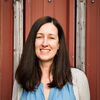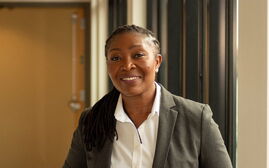Don’t argue semantics: Prepare for changes in fishing, housing
At a recent Pierce Atwood event on the impact of climate change, an attendee posed a common question: whether the term climate change has hurt scientists and others trying to convince the public that ocean waters are warming and thus changing, and that coastal communities are at risk for flooding or disappearing altogether.
I looked out the window at a spectacular view of Casco Bay on a warm, clear day, at various fishing and recreational vessels tied to a series of docks in the area while tourists perused the cascade of stores lining Portland's waterfront. Then I closed my eyes and tried to envision the same scene 30 years or so into the future, and whether rising oceans may take over the docks and Commercial Street, turning it into a giant swimming pool.
I've covered environmental issues for more than 20 years, and have heard the same doubts about the reality of global warming and climate, especially that caused by human activities related to the resulting rise of carbon dioxide emissions. I do agree with those who question the terminology, and believe it can obfuscate real issues that are impacting us now.
We've already seen evidence of rising seas as residents of Isle de Jean Charles in Louisiana in May became the first American “climate refugees,” following others in the South Pacific and elsewhere, who have had to leave their homes behind. Southern Maine should prepare for a 4% sea level rise by the end of the century, scientists say.
Andrew Pershing, chief scientific officer at the Gulf of Maine Research Institute and a speaker at the Pierce Atwood event, admits scientists sometimes haven't helped advance their own cause in explaining their projections and observations, especially when they disagree openly with one another.
“All of the mess of science has hurt climate change,” he says of the public's confusion over the debate.
“People listening to the radio don't know how to differentiate fact from spin,” says Sunshine Menezes, executive director of the Metcalf Institute at the University of Rhode Island Graduate School of Oceanography.
So how does the public sort through the opinions? I don't have a clear answer except to watch what's going on in your own back yard, and prepare for changes that could be harmful.
“Portland Harbor is a metaphor for how climate change changes our lives,” Pershing says. This year, the Gulf of Maine, which stretches from Cape Cod to Canada's Bay of Fundy, already is 4.6 degrees Fahrenheit above average, and it may break another record this year, he says. And it's warmed twice as fast as other average ocean temperatures elsewhere over the past 35 years.
That impacts the fish and other species that can't tolerate those higher temperatures and the changes in water salinity. Just look at the decrease in groundfish boats in the past 10 years, he says. And while there's a comparative boom in lobster in Maine this year, the fishery in Rhode Island is effectively closed due to shell disease and fishery management issues.
So perhaps the focus shouldn't be on whether or not “climate change” is the proper description or whether or not one believes it is happening, but instead on economic drivers for the state like fisheries, and how we want them to be managed for what we think is going to happen in the future.
Read more
Questioning our Changing Oceans' panel discussion at forum
New England fisheries feel the effect of warming waters
Getting to 100% renewable energy by 2050? Ambitious, but not impossible
A passive house with proactive goals













Comments